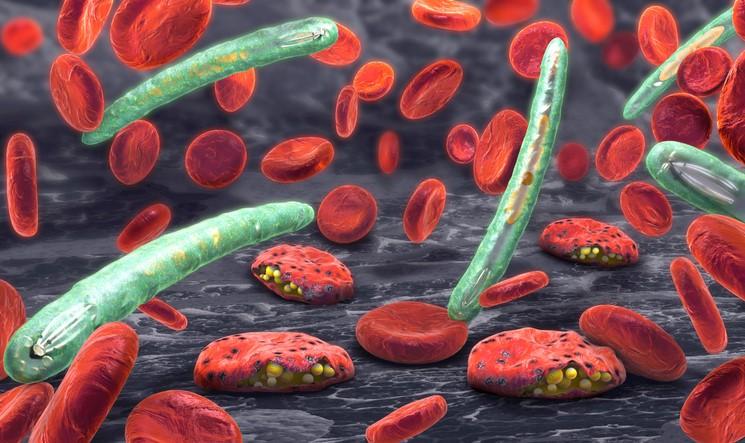Results from trials of tafenoquine, a novel anti-relapse medicine for patients infected with Plasmodium vivax malaria, have shown the drug to be effective and safe, according to a pair of studies published in The New England Journal of Medicine.
Tafenoquine was approved by the US Food and Drug Administration and the Australian Therapeutic Goods Administration in 2018, making it the first new medicine targeting P vivax malaria in more than 60 years.
Each year, P vivax malaria causes 7.5 million infections worldwide, and, unlike other parasite species that cause malaria, P vivax can lie dormant in a patent's liver and eventually cause relapses of the disease.
"A single P. vivax infection may therefore give rise to multiple episodes of malaria, in the absence of a new mosquito bite. These relapses can occur weeks, months or even years after the initial infection," Gavin Koh, PhD, a researcher at GlaxoSmithKline and an author of the study, told CIDRAP News. GlaxoSmithKline partnered with the nonprofit Medicines for Malaria Venture to study tafenoquine.
The dormant forms of the parasite cannot be treated with most other antimalarial treatments.
Tafenoquine vs primaquine
The randomized control trial was conducted with 522 patients with confirmed P vivax infection enrolled in sites in Ethiopia, Peru, Brazil, Cambodia, Thailand, and the Philippines. The patients were treated with a 3-day course of chloroquine, a standard drug used to treat the initial malaria infection.
Participants were also assigned to receive a single 300-milligram (mg) dose of tafenoquine on day 1 or 2 (260 patients), placebo (133 patients), or a 15-mg dose of primaquine once daily for 14 days (129 patients). The outcome measure was clearance of P vivax after 6 months.
Primaquine is the standard treatment for malaria caused by P vivax, but Koh said most patients do not comply with the 14 days of dosage required to treat the infection.
A total of 62.4% of patients in the tafenoquine group (95% confidence interval [CI], 54.9% to 69.0%), 27.7% in the placebo group (95% CI, 19.6% to 36.6%), and 69.6% in the primaquine group (95% CI, 60.2 to 77.1) were free of P vivax after 6 months.
"When considering the compliance issue of primaquine in the real-world setting, we saw that more than 95% of patients in the primaquine group took their treatment as instructed in the setting of a clinical study," Koh said.
Safety concerns and real-world use
From a safety standpoint, tafenoquine carries the burden of causing hemolysis in some patients who have glucose-6-phosphate dehydrogenase (G6PD). Before treatment with the drug, patients must have their G6PD levels tested.
Currently, there are no point-of-care tests that determine G6PD status in field conditions, a potential problem, writes Nicholas J. White, FRS, in an accompanying commentary.
"It is too early to say whether tafenoquine can be used safely on a large scale in routine practice and thus fulfill its promise as a radical improvement in the treatment of malaria," White wrote.
See also:
Jan 17 N Engl J Med study
Jan 17 N Engl J Med study
Jan 17 N Engl J Med commentary





















